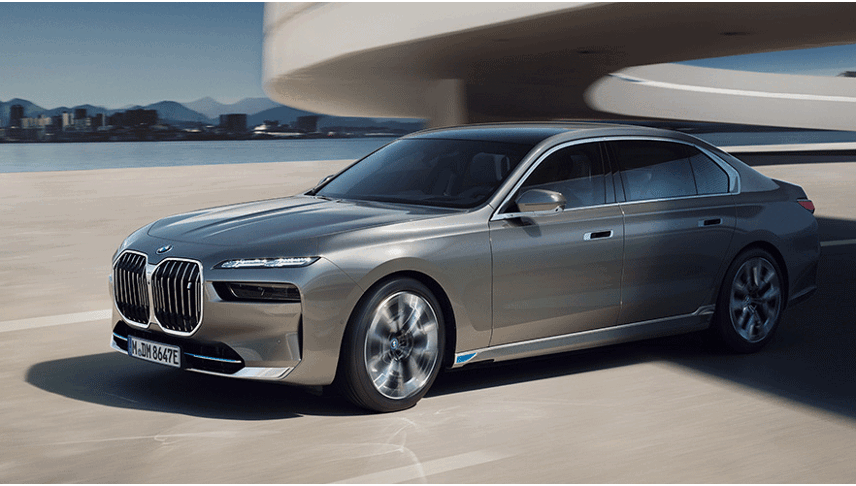Register for free and continue reading
Join our growing army of changemakers and get unlimited access to our premium content

Pictured: BMW's i7 electric car
That is according to the Badvertising campaign group, which has worked with the New Weather Institute think-tank to assess the level of the auto industry’s investment in PR deals with sports clubs, venues and broadcasters.
A total of $4.5bn was spent on these deals in 2022, up from $1.28bn in 2018, they found. This speaks to a desire from the auto industry to improve its image.
BMW and Toyota were the two largest auto industry sponsors of sports, the two organisations found. The brands, combined, have more than 120 active partnerships across 20 sports, with some centred on promoting BMW and Toyota’s electric vehicles (EVs) and corporate sustainability goals.
The report praises some sports bodies of cutting ties with fossil fuel majors, as Tennis Australia did with Santos. But it urges these organisations not to lose sight of the fact that transport is the fourth most polluting sector globally, accounting for 15% of annual global emissions. Road transport accounts for almost 70% of the transport sector’s climate impact.
It also urges sporting bodies to look more critically at automakers’ EV targets and other sustainability pledges – as well as their impacts historically and in the present.
Toyota and BMW, the report states, sold more than 12.5 million vehicles with internal combustion engines in 2021. These vehicles will generate 855 million tonnes of CO2 during their lifetimes. For context, the UK’s national emissions in 2021 were 505 million tonnes.
Toyota will continue selling vehicles with internal combustion engines through to 2040. BMW has stated that it would be ready for an EU ban on internal combustion engines in the 2030s, and the UK’s ban in 2030 – but the company has told media that it has no plans to end production completely.
Ultimately, the report accuses sporting bodies taking sponsorship from polluting companies of “nailing the lid on their own coffins”, as they will find it more challenging to operate in a heating world. Cricket will reportedly be the hardest hit by extreme heat of the world’s most popular pitch sports.
The report also highlights the need for modal shift away from individual car ownership and towards more shared, public and active mobility to meet the Paris Agreement goals on climate. Encouraging active transport is also a way to improve public health, including the health of would-be sports stars.
Team GB slalom canoeist Etienne Stott said: “We know why polluting companies sponsor sportspeople, clubs and competitions. Like the cigarette companies before them, they want to benefit by association with images of active, young healthy athletes and the emotional commitment of fans.
“For the sake of everyone involved, it’s time for sport to use its power to say ‘no’.”
Report co-author Jenny Amann added: “In the face of the crises of global heating, sport is in a unique position to accelerate efforts to drive this change to more healthy active travel and energy efficient mass transit, and should reconsider promoting systems that are harmful and out of date.”
A BMW spokesperson responded to the report by pointing out that the company is aiming for at least 50% of its global sales volumes to be EV by 2030.
They added: “Currently, the company is taking concrete measures to reduce the lifecycle carbon footprint of its products by 40% by 2030 compared to 2019 levels.
“The company is committed to the goal of climate neutrality by 2050 at the latest and is following a scientifically validated and transparent path along the entire value chain.”


Let us not lose sight of the fact that the human race demands a great deal of energy in one form or another.
Other than solar (intermittent), water power (limited), and nuclear, our sources are mainly fossil fuels.
Electric transport relies on batteries, rare materials in nature, and even then we are back to conventional generation.
It just is not simple, believe me, I spent the major part of my life in nuclear energy research, and amazingly we still have energy problems, perhaps I should come out of retirement!!